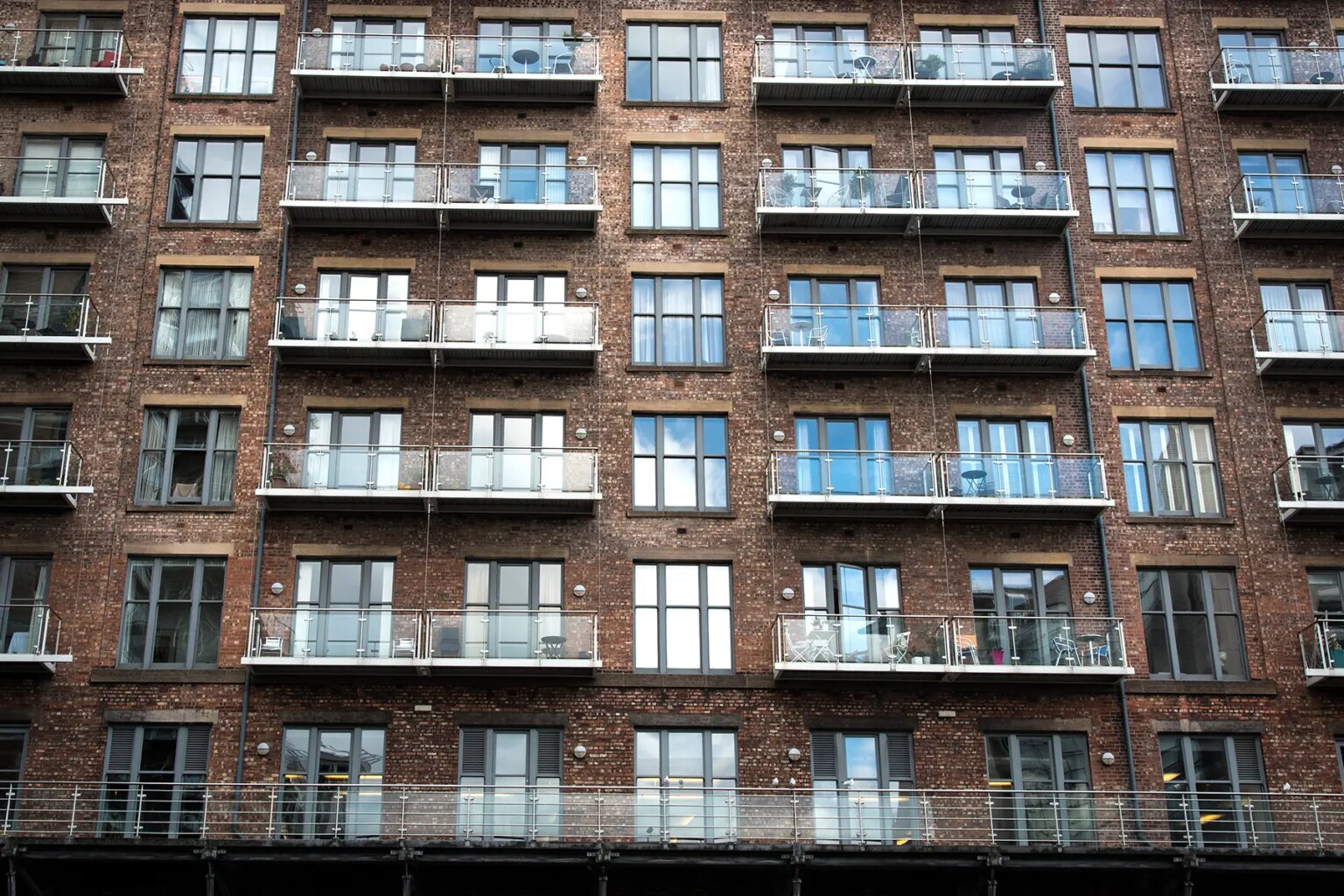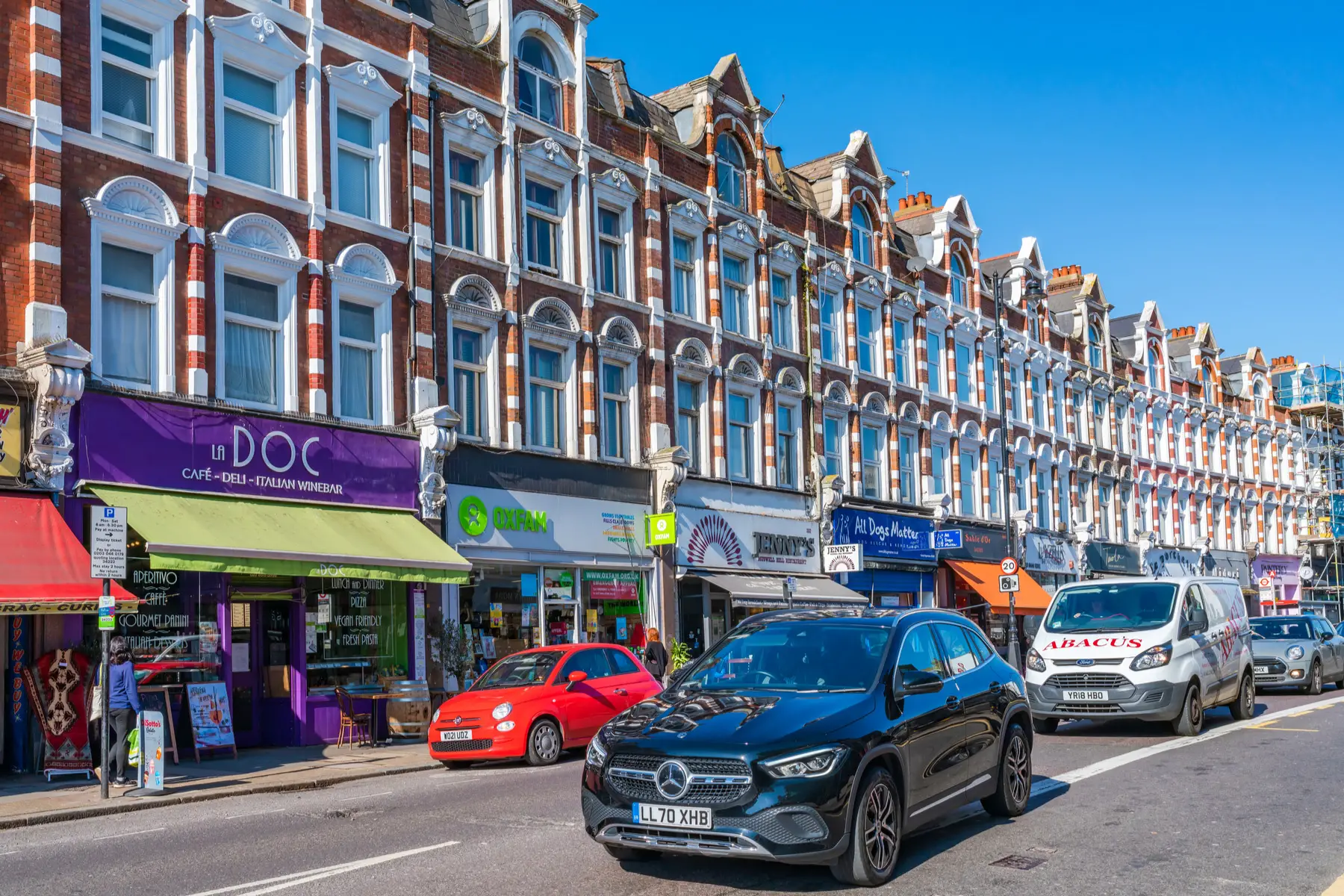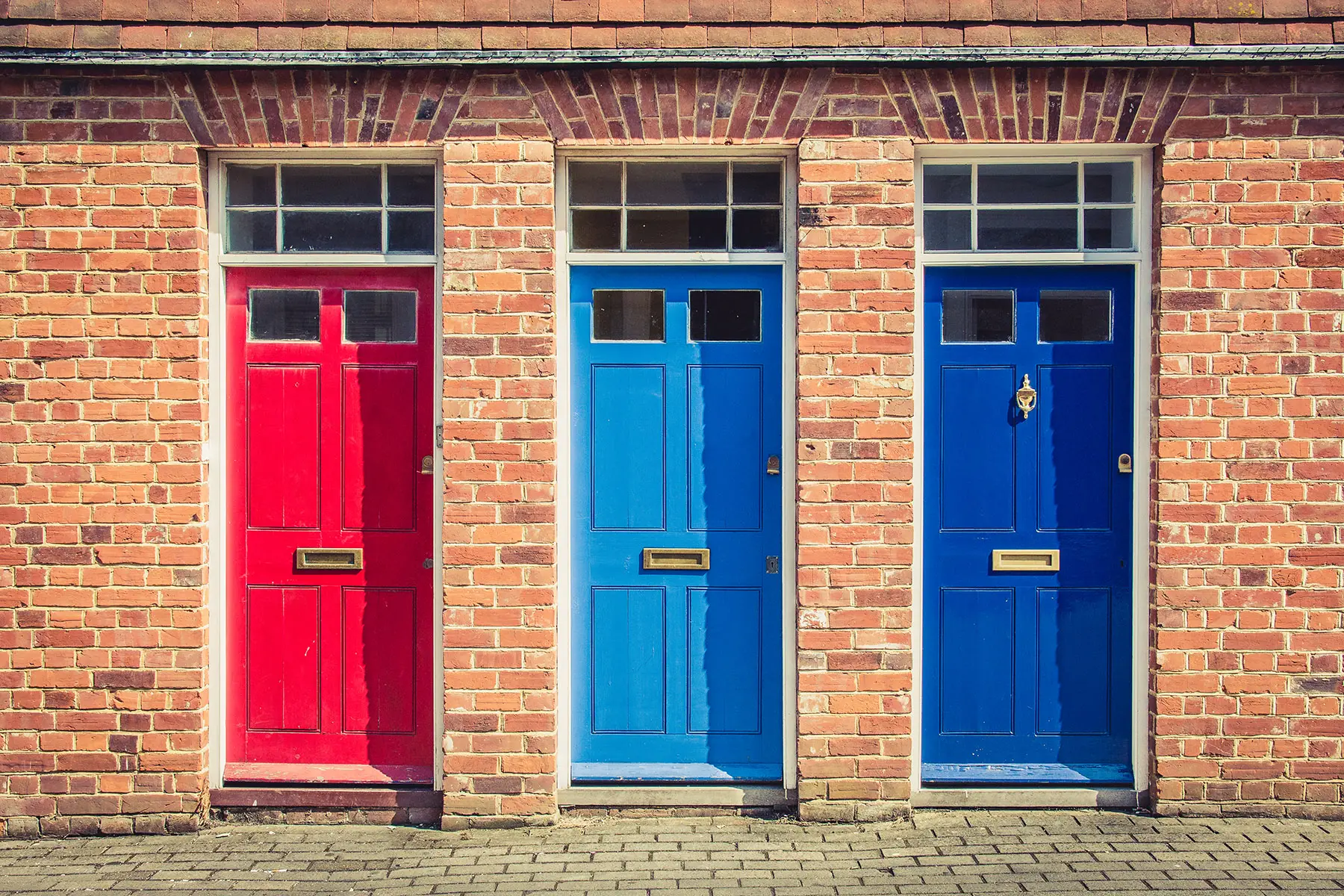Whether you are looking to rent or buy a property in the UK, there are many housing options to suit most budgets. Moreover, property prices can vary significantly between regions in the UK. This is an important factor when it comes to deciding where to live. So to make your decision simpler, this article on UK housing covers everything you need to know, including the following:
An overview of housing in the UK
Around 65% of Brits own their own home. The proportion of homeowners in the UK is lower than in most other European countries; homeownership in 2020 was most widespread in Albania (96.3%), Romania (96.1%), and Slovakia (92.3%). The UK’s homeownership rate is largely due to the right to buy scheme of the 1980s, which encouraged millions of renters to buy their homes from the government, although not nearly at the same rate seen in eastern European countries. Consequently, there is now a shortage of social housing, yet homes are still available to those in need.
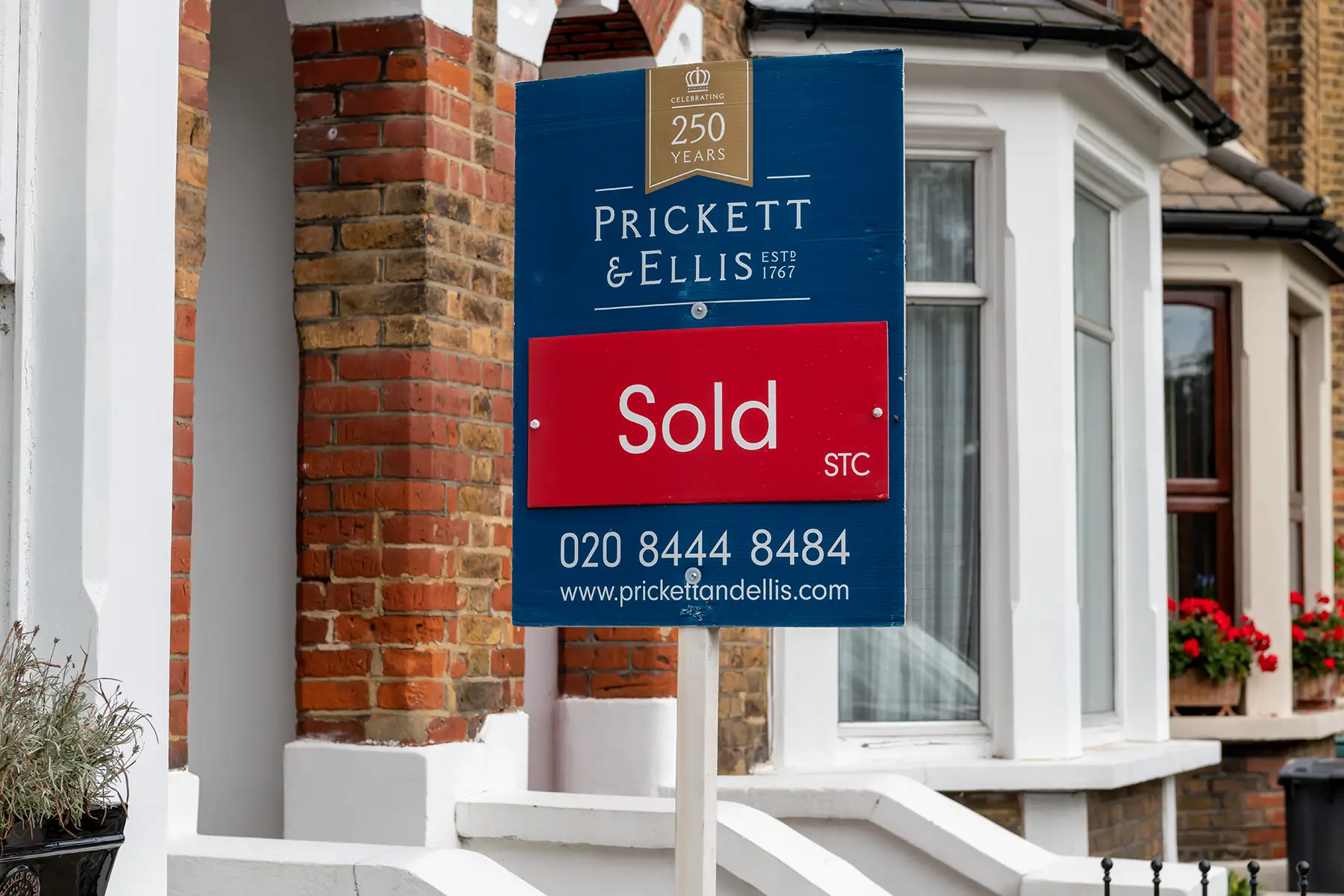
Renting, on the other hand, is common in London and other large cities in the UK, particularly among expats. Meanwhile, monthly rent is usually significantly lower in the north of England, Scotland, and Wales.
The UK housing market
The UK housing market remains strong despite fears that Brexit could lead to a fall in house prices. According to the Nationwide House Price Indices (NHPI), 2021 was the strongest year for house price growth since 2006, with the cost of buying a home rising by 20% compared to 2020.
Wales saw the strongest rise in house prices, with London seeing the least, as many residents decided to move out of the city during the COVID-19 pandemic. Nevertheless, London remains one of the most expensive cities in Europe to buy or rent. The average cost per square meter to buy an apartment is nearly three times as high as in Manchester, while monthly rents are slightly higher (€30.70 per square meter) than those in Paris (€28.80).
Overall, UK rental prices rose by 2% in 2021, which was less than the 20% increase in the buyer’s market. That said, the average Brit spent 40% of their income on rent, compared to the European average of 28%. You can read more about this in our article on renting in the UK.
Housing laws and regulations in the UK
While anyone can buy or let property in the UK, there are strict laws when it comes to immigration and residence conditions for accessing social housing. Each council has different rules for who can apply.
One other piece of housing legislation that might affect you is the Building Act 1984. This was updated in 2004 and outlines the conditions for construction and adding to or rebuilding existing structures. It means that any building you live in must meet certain standards, affecting the building work you can carry out on your property.
Rental laws in the UK
If you rent a property as a tenant in the UK, you will usually have a rental contract for six or 12 months. The contract outlines when you should pay your rent and the rental period, among other responsibilities. Importantly, there are steep fees if you break the contract and move out early. You must usually also give one month’s notice prior to the end of the contract if you wish to move out or extend the term.
As a tenant, it is your responsibility to maintain the property in the state you found it, so you should report any damages to your landlord, who must fix the issue promptly. The UK government website provides a full guide to tenant rights and responsibilities while renting.
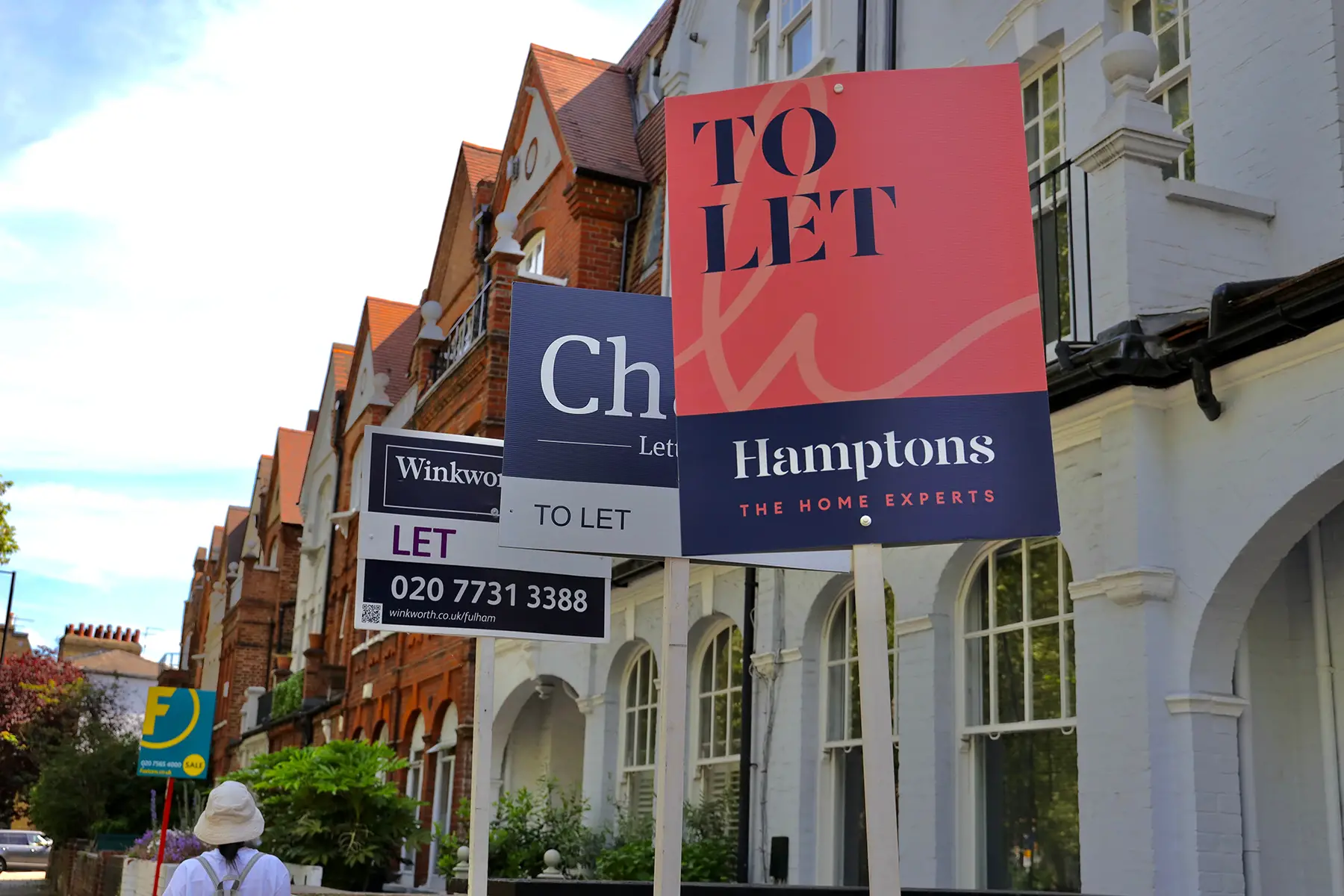
As a landlord renting a property, by law, you must place the deposit received from your tenant in a safe deposit scheme and release the funds to the tenant when both parties agree on any costs incurred during the tenancy. It is also the landlord’s responsibility to provide maintenance services for all ‘white goods’ such as a boiler, fridge, and washing machine and to have fully functioning smoke and gas detectors. You can find a full guide to landlord rights and responsibilities on the UK government website.
Property purchase and building laws
There are no specific laws that apply to expats buying a property in the UK. Foreigners and non-residents can apply for a mortgage, but if you haven’t lived in the UK for two years or are not employed in full-time work, the mortgage lender will likely ask you for a larger deposit. Notably, estate agents, mortgage lenders, and solicitors must carry out identity checks on all buyers to prevent money laundering and fraud.
There are very detailed planning laws to be aware of when building or extending a home you purchase in the UK. For instance, the Building Act 1984 states that the local authority must approve any building work, and permission must be granted before the building work commences. This includes any structural work such as updating the electricity and plumbing in a property.
Buying or renting in the UK
There are a lot of factors to consider when it comes to assessing whether buying or renting in the UK is the better option for you. Below are some things to keep in mind.
The pros of renting a home in the UK
Renting a property is very popular among expats living in the UK, particularly those on short-term employment contracts. Renting can be a very swift process – once you have found a home you like, you can sometimes move in in a matter of days. The landlord will provide the ‘white goods’ such as a fridge, cooker, washing machine, and boiler. They are also responsible for the upkeep and maintenance of these items.
Renting is a great way to see if you like living in an area before committing to it long-term. Rental contracts are usually drawn up for 12 months, although six-month rental contracts are sometimes available, depending on the landlord.
You can also rent directly from a landlord and cut out the estate agent, should you wish to, by using online portals such as:
The cons of renting a home in the UK
Unfortunately, renting doesn’t provide a great deal of stability, as landlords are entitled to sell their property at any time. However, even if the property changes hands, you have the right to carry on living there until the end of your contract. Landlords can also choose to raise the rent at the end of your contract, which is common in the UK. Furthermore, many landlords stipulate that pets are not allowed, which can limit your options if you have a pet. Moreover, you can’t decorate a rental property, as most rental contracts forbid you from painting or knocking pegs into walls.
The pros of buying a home in the UK
One of the main advantages of buying a home in the UK is that your monthly mortgage repayments will be less than renting an equivalent property, particularly in a city. What’s more, the repayments you make are all going into your own pocket as you slowly begin to own a larger portion of your home, rather than paying a landlord’s mortgage! When you own your home, you can, of course, redecorate and own pets. Plus, you will have the security of being settled.
The cons of buying a home in the UK
Buying a home requires a very complicated set of procedures, as you will need to liaise between estate agents, solicitors, surveyors, and the seller. Of course, this is very time-consuming and requires a lot of patience. It can sometimes take months to find and secure the right property. And once you own your home, house prices can fall, and mortgage rates can change, so make sure you choose wisely.
Renting in the UK
Renting is a very popular option among the expat community in the UK, particularly in London, where property prices are high. You can rent an apartment, house, or a spare room in a shared home. The latter is popular among younger expats and those relocating solo, as it’s a sociable and affordable option.
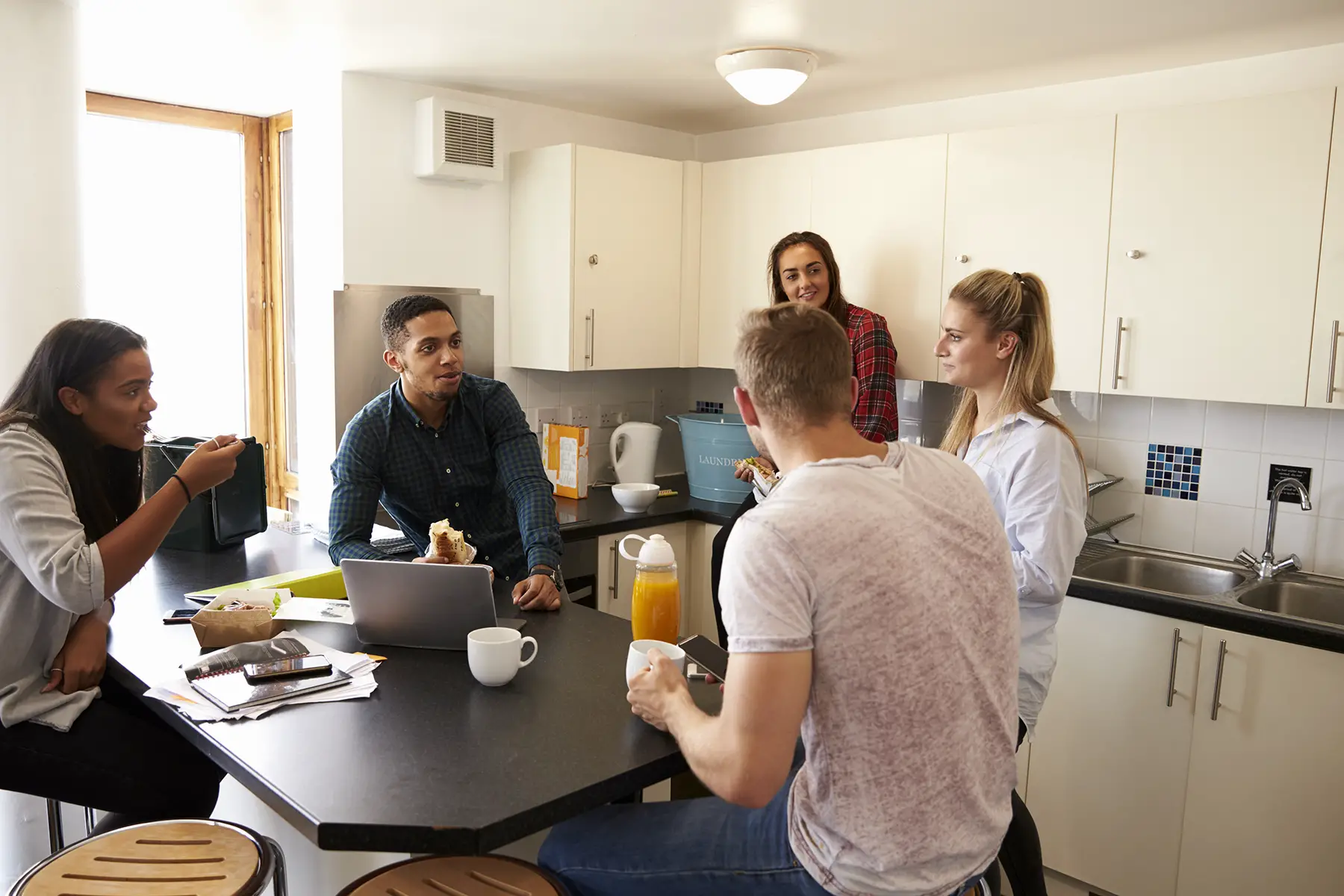
To rent an apartment or house of your own, you first need to arrange viewings. You can contact landlords directly on platforms such as OpenRent and Gumtree. Alternatively, you can use an estate agent who will be able to tell you about the local area.
After viewing several properties and selecting one you would like to rent, you will pay a holding deposit, which should be no more than one week’s rent. This will become part of your secure refundable tenancy deposit, which you will need to pay when you move in. On moving-in day, you will need to pay one month’s rent and a five or six-week tenancy deposit before signing your contract and receiving the keys.
Notably, renting in the UK has become much more tenant-friendly, thanks to new government restrictions regarding estate agency fees that came into effect in mid-2019. Before that, estate agents could add arbitrary charges such as ‘tenancy set-up fees’ for drawing up a contract or ‘viewing fees’ after showing you around a property. Now, the only fees permitted are:
- rent
- a refundable tenancy deposit
- a holding deposit of one week’s rent
- expenses associated with ending your tenancy contract early
Rental contracts in the UK can be requested for six or 12 months, so if you are unsure of how long you will be settling in the UK, it’s best to go for a six-month contract, as the costs to leave a 12-month contract early can be high.
You can browse rental properties by using directories specially designed with expats in mind, that offer short-term contracts, such as HousingAnywhere.
For longer stays, however, sites such as Rightmove and Zoopla can be helpful.
Social housing in the UK
Affordable housing in the UK includes rented social housing, affordable rented housing, and intermediate housing. These are designed for eligible tenants whose incomes do not meet the prices of the housing market.
Tenants that rent social housing usually do so from a housing association, while those that rent council housing do so from the local council. As a rule, you need to fall under one of the following criteria to qualify for this:
- be a British or Irish citizen
- have indefinite leave to remain (ILR)
- hold settled status under the EU settlement scheme
- have right of abode as a Commonwealth citizen
- hold refugee status or humanitarian protection
- have a visa that allows you recourse to public funds
You must also show that you are on a low-income wage to apply for social housing in the UK. If you are eligible, you can apply to multiple housing associations at once. Waiting times are known to be lengthy, but it’s worth registering if you are eligible.
Renting out your property in the UK
Suppose you plan to rent out your property in the UK after purchasing it, or know that you will live in your property for a short while before renting it out. In that case, you are legally required to select a buy-to-let mortgage at the time of purchase or consult your solicitor about changing your mortgage to a buy-to-let mortgage before you let out your property. Many banks, such as HSBC, offer an expat mortgage scheme and provide expats with support throughout the process.
When your chosen bank offers you a buy-to-let mortgage, they will give you a Key Facts Illustration, which indicates the fees you will need to pay. For example, this includes an arrangement fee to secure your mortgage deal and a standard valuation fee for valuing the property and making sure it is safe to let on.
Once you have the correct mortgage, you can let the property out yourself or use an estate agent to manage the process and income for you. Notably, estate agents usually charge 10–20% of the monthly rental as their fee. The property must be let under an Assured Shorthold Tenancy (AST) unless you are using a Company Let Agreement, where a company lets out the property on behalf of an employee.
Buying a home in the UK
There are no legal restrictions for expats buying a home in the UK. Furthermore, many banks have specific teams that offer expat mortgages and support expats throughout the property buying process. That said, if you have resided in the UK for less than two years or are not employed in the country, you will face stricter requirements, such as needing a larger deposit. You can read more about this in our article on mortgages in the UK.
The first step when planning to buy a house in the UK is to appoint a solicitor to handle the administrative work with you. It can take months to complete a purchase, and your solicitor will oversee the process with you.
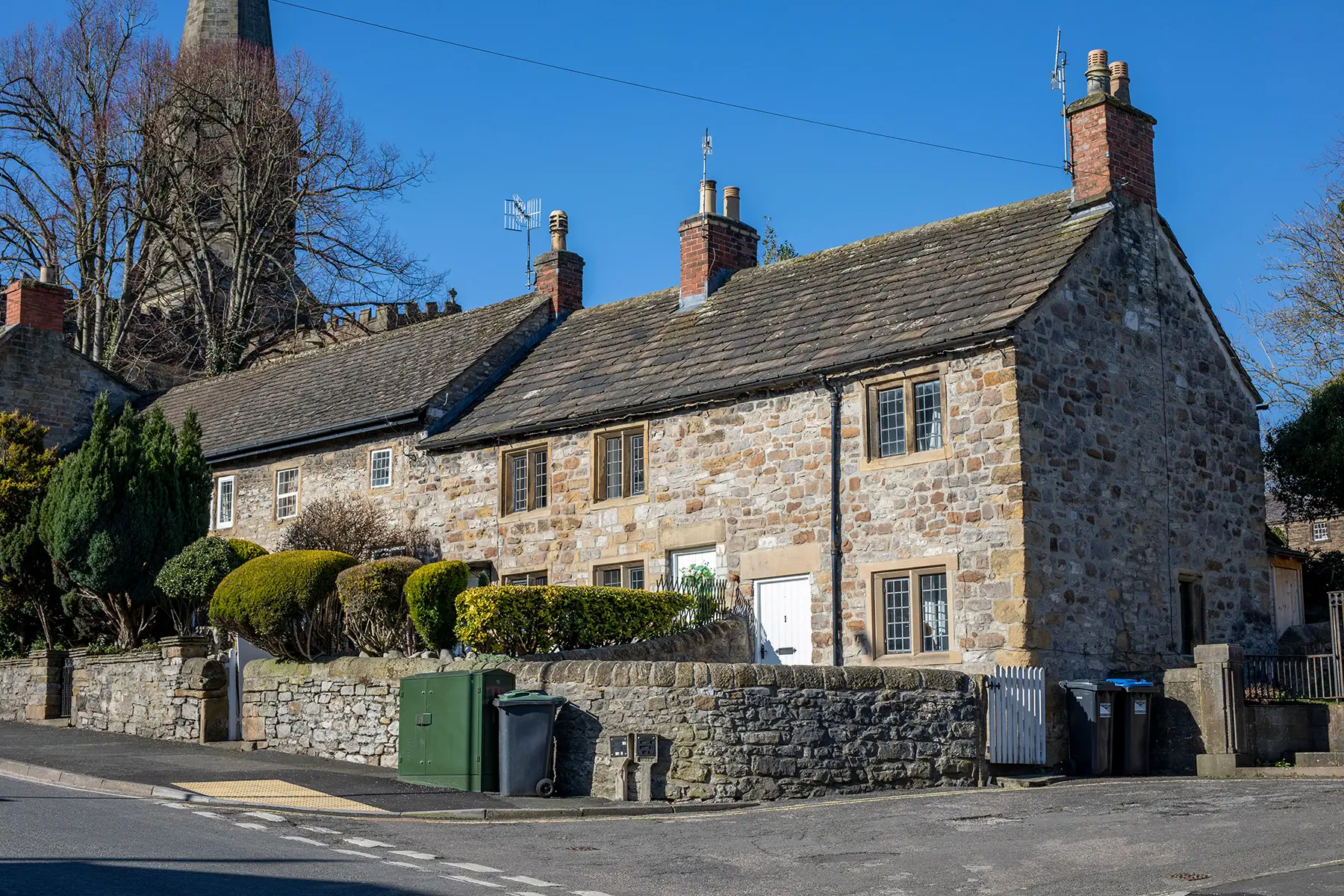
There are several associated costs when buying a home in the UK. Firstly, all buyers are charged a Stamp Duty Land Tax (SDLT) on purchases of more than £125,000, which usually comes in somewhere between 2% and 3% of the property price. Conveniently, banks typically have a Stamp Duty calculator on their websites. Secondly, the largest cost will be your deposit, anywhere from 5% to 40% of the overall property price. You can also expect to pay legal fees to your solicitor of £1,000 upwards. Finally, when the previous owner transfers the legal deeds of the property to you, you will pay land registration fees to the UK government.
The UK government website outlines each step of buying a home in the UK. You can also browse property listings on estate agent websites and directories such as Rightmove and Zoopla.
Affordable housing in the UK
Affordable housing is relative to your salary, defined by the Office for National Statistics as no more than 30% of your monthly income. As a result, those working low-income jobs struggle in London, where rental costs are high; for example, a two-bedroom apartment in Waterloo costs £2,500 to £3,000 per month to rent.
Although there are no rent caps in place, landlords cannot raise the rent until the end of the tenancy contract. In addition to social and council housing, which is applicable for low-income earners, the UK government currently offers two affordable homeownership schemes, as follows:
The Help to Buy: Equity Loan
This aids first-time buyers with an equity loan towards the cost of buying a new-build home. To qualify, you must be over 18. The property must also be a new build and registered as part of the Help to Buy scheme. The scheme closes to new applications on 31 October 2022.
Shared ownership homes
If you cannot afford the deposit and mortgage payments for a home on the open market, you can also buy a home through the shared ownership scheme. This allows you to buy a share of the property, usually between 10% and 75% of the home’s market value, and pay rent to a landlord on the percentage that they own. However, you usually pay monthly ground rent and service charges, for example, towards the maintenance of communal areas. It’s also possible to buy more shares in your home as time goes on.
Sustainable housing in the UK
The UK government has pledged that the country will reach net zero emissions by 2050. However, many local authorities have their own targets and are aiming to be carbon neutral by 2030. A current topic of discussion and protest across the UK is the issue of insulation, as much of the property in the UK is over 100 years old and does not meet modern, environmentally sustainable recommendations.
A new green standard for new build homes was announced in 2019. The Future Homes Standard aims to bring an environmental revolution to home building and tackle climate change. The Future Homes Standard will see polluting fossil fuel heating systems such as gas boilers disallowed in new homes by 2025 in favor of clean technology, such as air source heat pumps and cutting-edge solar panels.
Mortgages in the UK
There are no restrictions when it comes to expats getting mortgages to buy a property in the UK. That said, applying for and taking out a home loan can be complex. While the variety of mortgage products available in the UK may be overwhelming, you are only likely to get one of the two most popular types: fixed-rate and variable mortgages.
You can apply for a mortgage directly from a bank or building society. Alternatively, you can use a mortgage broker or financial adviser who can compare different mortgages for you. Before applying for a mortgage, you should check with the three credit reporting bureaus – TransUnion, Equifax, and Experian – and ask for a free credit report to ensure there are no reporting errors.
Notably, there are a number of UK banks that offer expat mortgages and specific support for expats looking to buy a home. You can find out more about different lenders in our article on the best banks for expats in the UK. Otherwise, to compare mortgage providers, online services such as Giving Mortgages can help you find suitable products and match you with an advisor.
Selling a home in the UK
Selling a property in the UK usually takes three or four months if there are no hold-ups or unexpected problems. That said, if you are in a ‘chain’ of buyers and sellers, it can certainly take longer. This is because there are many steps to go through when selling a property, as outlined by the property website YourMove:
First, you need to find out the value of your property by inviting estate agents to conduct a free valuation. You then need to calculate the associated costs of the move and make sure it is within your budget. The next stage is to arrange an Energy Performance Certificate (EPC), which rates your property’s energy efficiency. Once these steps are complete, you can put your house on the market with an estate agent who will photograph your property.
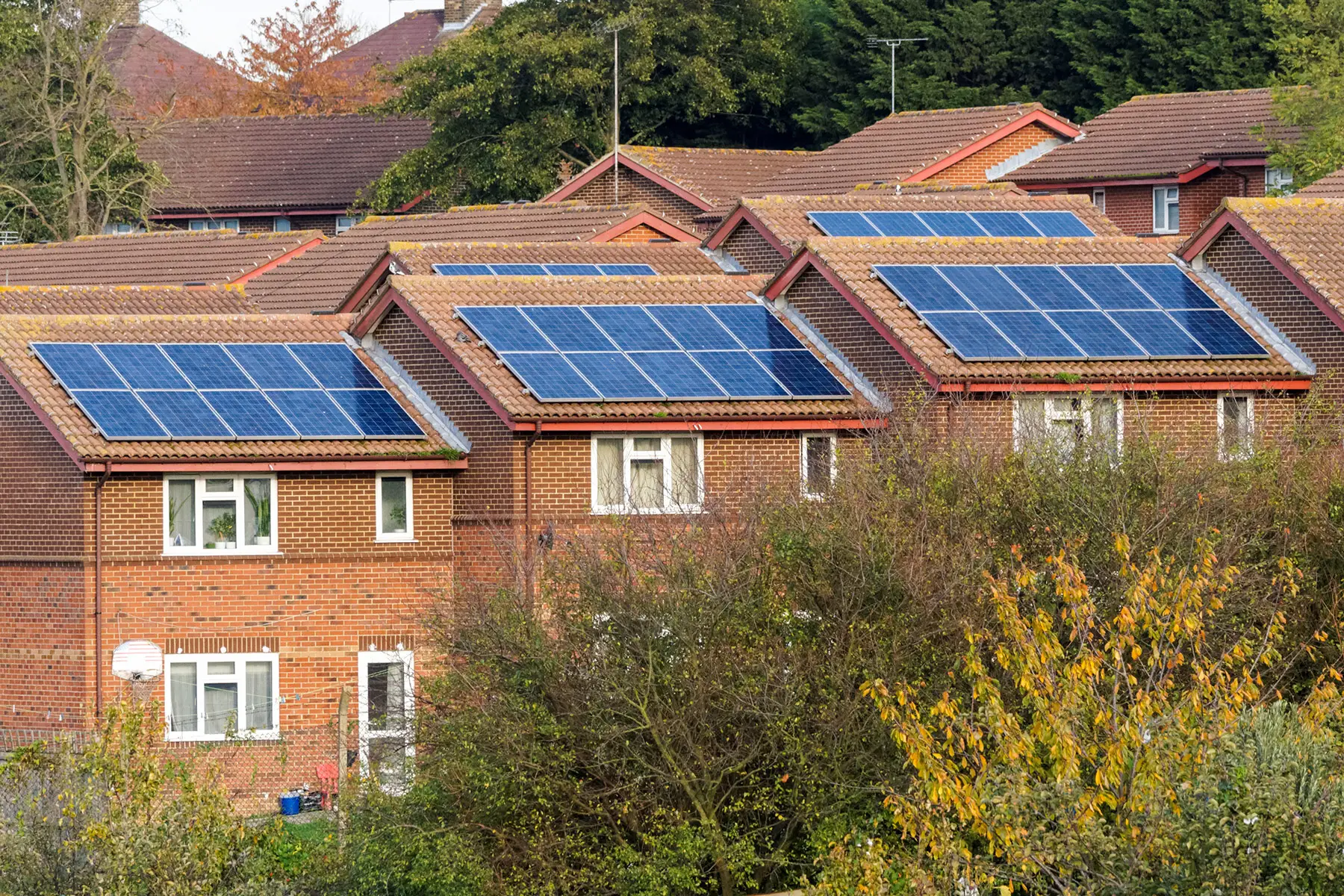
You then need to prepare your property for viewings. You can show potential buyers around your home, or an estate agent can do this. If a viewer makes an offer, your estate agent will notify you by phone and writing. Once you accept an offer, you must find a solicitor to handle the ‘conveyancing,’ the legal paperwork that transfers your property to the buyer. When your solicitors have formally agreed on the sale, you receive a memorandum of sale.
The buyer will then arrange a mortgage valuation with their bank and a house survey. Your solicitor will draft a contract of sale to send to the buyer’s solicitor. They then perform searches with the Land Registry and the Local Authority to check for any developments in the area, such as building works on the roads.
Finally, you both sign the contract and arrange a date for completion when you move out and hand over the keys. Be aware that the offer on your house is not legally binding until you exchange the contracts.
Building a home in the UK
The UK government explains that building your own home ‘helps to diversify the housing market and increase consumer choice.’ However, you must have permission from your local authority before commencing any building work. Begin by contacting a ‘building control body’ (BCB) to check the building regulations or apply for approval.
While the government is enthusiastic about people building their own homes, it is not overly popular in the UK. Indeed, only 13,000 homes are built by their owner each year. This accounts for a smaller percentage than in countries such as Germany, where 55% of new homes are commissioned by their owners.
Websites such as BuildStore can help you to find a plot of land. When it comes to costs, you can expect to pay between £1,750 and £3,000 per square meter. Here are some cost estimates for building your own home in 2022:
- Two-bedroom house: £187,625–281,437
- Three-bedroom house: £242,250–363,375
- Four-bedroom house: £294,500–441,750
You can use this cost calculator from Urbanist Architecture to work out estimates for extensions and home builds.
Useful resources
- UK Government checklist for renting
- UK Government guide to buying a home
- Urbanist Architecture – a cost calculator for building a house or extension
